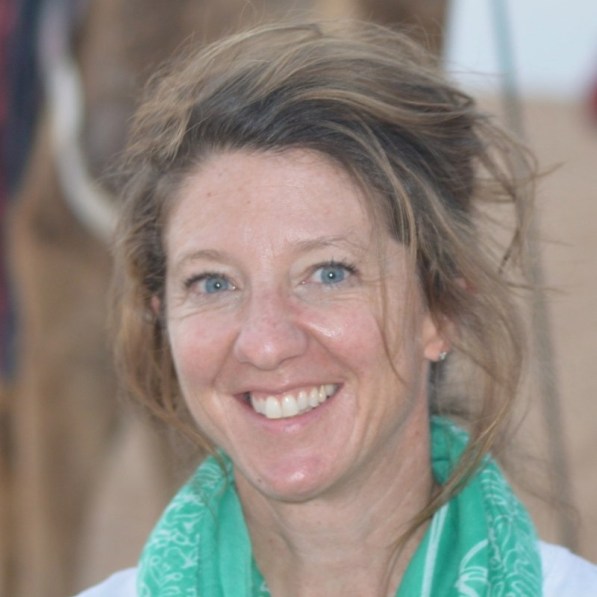From Forest Fires to MNR to Urban Forester
By: Lindsay Key
June 18, 2018

Colorado’s Waldo Canyon fire, which burned in June 2012 and caused major flooding, elimination of trees, soil erosion, and the evacuation of more than 32,000 Colorado Springs residents, had a major impact on the career of Virginia Tech Master of Natural Resources (MNR) graduate Rebecca Lamphear.
“It changed my perspective on the natural landscape indefinitely, both personally and professionally,” said Lamphear, who was working as an Urban Forester for the City of Colorado Springs at the time.
Lamphear and her team, which included students and recruited volunteers, designed plans to stabilize soil and reduce impacts of flooding, a common occurrence after wildfire.
“It was an incredible opportunity to give back to my community that had lost so much,” said Lamphear. “We had help from non-profits, the air force academy, and local people that just wanted to volunteer.”

After the events of the disastrous wildfire, Lamphear wanted to develop a comprehensive knowledge of natural resources challenges in the global environment. She felt that many of the classes in Virginia Tech’s Online MNR program could help her understand natural resources issues better from both a physical science and social science perspective while offering her the flexibility that she needed.
For example, shortly after enrolling in the program, she learned that her husband’s career would move them abroad to the United Arab Emirates for a few years. At this juncture, she was even more grateful for the online format of the program, which allows you to complete courses from a distance.
“Other than the challenging time difference, the program was extremely flexible and I was able to complete my coursework no problem,” said Lamphear.

An urban forestry course taken while Rebecca was in the MNR program proved one of the most helpful, she said.
“I had a basic knowledge of the benefits that trees offer a community, but this class improved my knowledge of how ecosystem services are applied and valued,” said Lamphear.
After graduating from the program and returning to the U.S., Lamphear accepted the position as Environmental Inspector for the City of Aurora, Colorado, in 2017. In her current role, she is responsible for leading efforts to evaluate and manage the city’s forest, focusing mostly on urban canopy restoration (pruning) and regeneration (planting). The City of Aurora’s Forestry program also focused on tree removal to ensure the safety of residents within the community.
With a balance of both indoor and outdoor work, she spends significant time in plan review and meeting with developers before they submit plans to the local government. The city of Aurora has a well-established tree preservation policy that focuses on landscape-scale conservation as well as the individual tree. The landscape ordinances and policies focus on the preservation of natural areas in developments for the betterment of the community.

While tree preservation is always preferred during new and infill development, that is not always possible. When trees do have to be removed due to development, Aurora’s forestry program uses tree mitigation where the city can recover funds based on the value of a tree.
“The value of a tree can be anywhere between $250-5,000 and more depending on the age, health, and condition of the tree. Funds are then used to plant new trees within the community,” said Lamphear.
Well-implemented urban forests can save the community money by reducing heating and cooling costs, as well as through human health benefits in the form of reduced healthcare costs. Trees can reduce stress, improve moods, and boost the immune system.
“People are starting to realize what urban forests can do for communities,” said Lamphear.

---

Rebecca Lamphear is an alumnus of Virginia Tech’s Online Master of Natural Resources program. She also has a BS in Natural Resources-Forestry, from the University of Wisconsin-Madison. A current Board member of the Colorado Tree Coalition, Rebecca has held various municipal forestry positions throughout the United States, including the Midwestern and the Southern regions; however, a majority of her professional career has been located in the Front Range of the Rocky Mountains. Her favorite pastimes are traveling, and anything outdoors with her husband and son.
The Center for Leadership in Global Sustainability thanks the following photographers for sharing their work through the Creative Commons License: Airman Magazine; Rebecca Lamphear (2nd, 3rd, and 4th); and Ken Lane.


